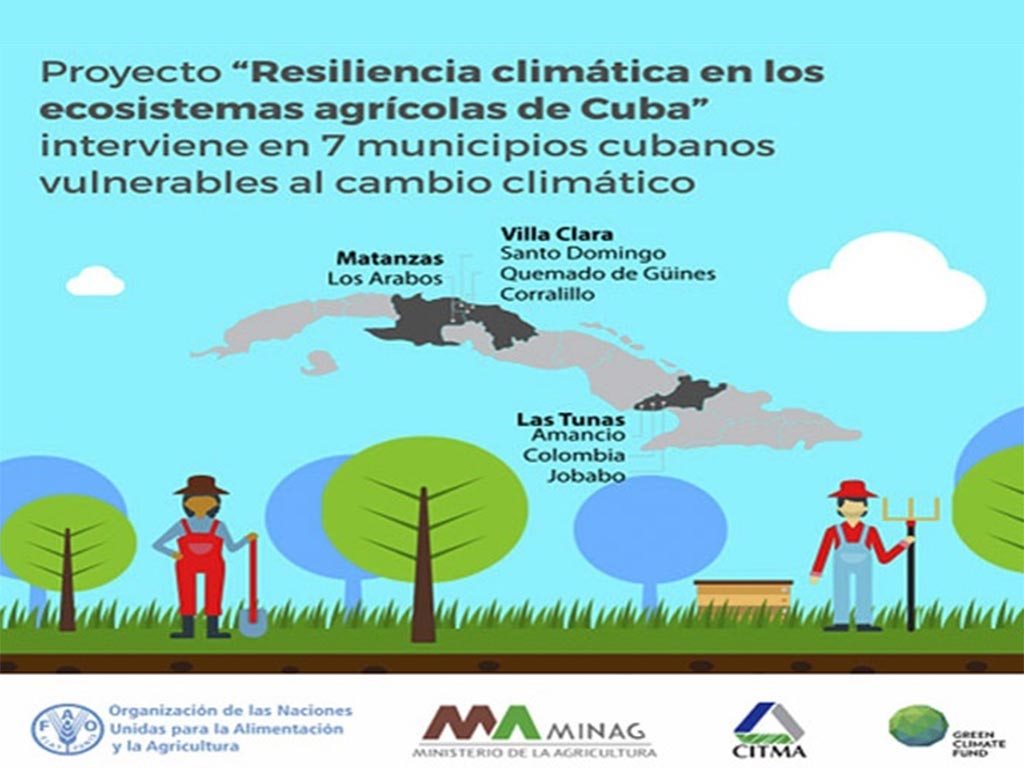The equipment supply responds to the project: “Climate Resilience in the agricultural ecosystems of Cuba”, implemented by the country’s Ministry of Agriculture, with technical assistance from FAO and financing from the Green Fund Climate Change (GCF).
Altogether, GCF contributed 38 million dollars to the initiative with a view to developing agri-food systems to provide benefits for food and agriculture in seven municipalities “highly affected” by climate alterations, FAO indicated.
As detailed by the agency, the project will supply backhoe shovels to construct reservoirs to store rainwater for the irrigation of crops, forestry and agroforestry systems, and animal consumption.
The chosen locations suffer from water deficit due to different phenomena, including the reduction and change in rainfall regime, the increase in evaporation, saline intrusion due to the increase in mean sea level, and other problems that reduce the availability and quality of water resources.
According to FAO, the machinery will facilitate cleaning tasks in the reservoir areas, earthworks, ground excavations, formation and compaction of slopes, and the reservoir bed, among other activities necessary to construct and rehabilitate water infrastructure. Their use will also help improve the efficiency and quality of work to guarantee adequate management of water resources in the agricultural communities benefited by the project.
Rainwater harvesting is an essential practice that allows reducing pressure on limited freshwater sources such as rivers and aquifers, helps maintain balance in the natural cycle and can be a source of supply during droughts or emergencies, FAO said.
jrr/llp/jha/mjm









